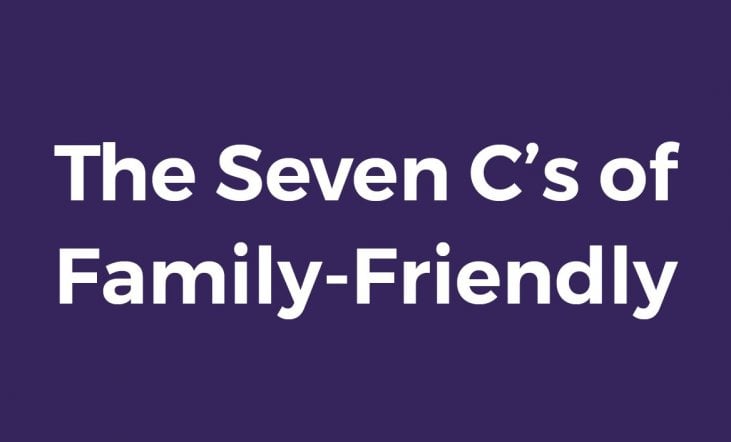Newsletter Sign Up
Regular work+family updates for
HR and diversity professionals.
My Family Care talked to Kate Burns, Head of Central Team Projects and Rachel Aygin, a senior PA and working parent, who runs the network, to find out more.
About the network and how it was started
Rachel Aygin explains: The Families Network currently has 140 members in London. In 2003 some of our working parents had an idea that it would be helpful to put together a parents group that could meet regularly and discuss topical issues. They felt that it would be able to provide support for people in the firm 'in the same boat' and that those with older children would be able to help and advise those with younger ones. As with most things in life it's really helpful to share and get help from people who have similar experiences and who understand what you're going through, both the good and the bad!
They sent out an email to try and get parents involved, held a meeting and got a committee together of about 6 parents to get the ball rolling. It was decided that holding regular seminars on topics that would be of interest to parents would be a good way to give structure to the group and generate engagement. The group also arranges social events outside of work for employees and their families to get to know each other.
The network's growth and progression
RA continues: Well originally the group started life as a parenting network and the seminars were funded through the Sports and Social committee. We renamed the group the Families Network in 2010 as our diversity team had interest from grandparents and employees who had other family care responsibilities which means that we now cater for everyone who has any kind of family responsibility.
How does the network fit into the diversity strategy of Freshfields?
Kate Burns explains: We have a clear focus on supporting and retaining our top talent. For those with families, that means recognising the importance of helping them to combine successfully their work and home responsibilities. We provide My Family Care's Backup Care service for our employees and we have worked with them to improve our maternity programme.
For parents we see the Families Network as a natural continuation of this. If you like, the Families Network is sort of a graduation from maternity. Once you're out of the new baby and return to work territory then you're dealing with childcare and toddler development and 'how do I make sure they're in the right school?'. And of course it's not just about mums, we have dads as part of the group and we're seeing increasing interest from those who have other care responsibilities. This is really important to us as it's central to our strategy that we make the firm a very rewarding and welcoming place to work.
The other thing I would mention is that the Families Network is also linked to our thriving Women's Network and also to other external networks as well, for example Citymothers. We see our networks as being part of the cultural fabric of the company, if you need help or support, these groups are a good starting point.
By parents and carers for parents and carers?
KB continues: Although the diversity team is involved, Rachel and the network committee continue to run the group as we feel very strongly that the main ownership should be with members who understand the needs of the group. Rachel is very committed, runs the group brilliantly and understands from her long involvement what works for it.
How does the network communicate and promote events?
RA explains: When we first started in 2003 we sent an email to staff and interested parties signed up to be added to our distribution list. Also we had flyers made that HR, who were responsible for the maternity programme, included within their maternity pack. Also word of mouth played a big part so other parents that were involved would tell new or expectant parents about the network.
We now have an internal wiki page which includes details of our seminars and outings, and sections of tips, useful web links and school reviews etc. We also have an email distribution list so we can send invitations for events and we use posters in the building as well.
How do you decide on seminar topics?
We've covered a lot of ground in the last few years!
The introduction of eldercare seminars has proved very popular. We've covered different angles on this as well - we've had a doctor come in to discuss dementia and we've had a carer come in to talk on the subject of eldercare. Everyone's very keen on practical tips and information and they like to take handouts and web links away with them.
I think what is interesting to see is who is turning up for the seminars. So for example on the parenting front, with the educational topics we were getting a higher percentage of men, more so than for the more emotional subjects! We recently had one about children and body image which a lot of people came to.
Sometimes we've sent out emails asking for suggestions on topics for seminars, and sometimes people just email me their suggestions spontaneously. Overall I try and find a balance between very broad appeal topics and topics that perhaps are more specific. Sometimes we'll repeat topics if we know there's a demand, for example, if we have a lot of new parents joining the group.
What benefit do the members see in having the network?
R.A. comments: Well, because obviously parents need to get home after work we try to run them so that people can come in their lunch breaks. That's why we provide sandwiches as well. But beyond just the information provided by the speakers, the members also get to talk to each other and get to know everybody and share their experiences. In terms of attendance, it's a real mix. We have PA's, support staff, lawyers and partners attending so there is a real feeling of shared experience.
Also members can contact other members on the distribution list if they're looking for help. For example, someone recently emailed me about a gluten allergy so I suggested that she emailed the distribution list to see if any other parents had been in a similar position and could offer any advice. The network is a way of reaching potential help and there's a feeling a trust because the monthly seminars enable people to get to know each other. If they work in different areas of the business this might not otherwise happen.
Kate Burns and Rachel Aygin, Freshfields Bruckhaus Deringer LLP












